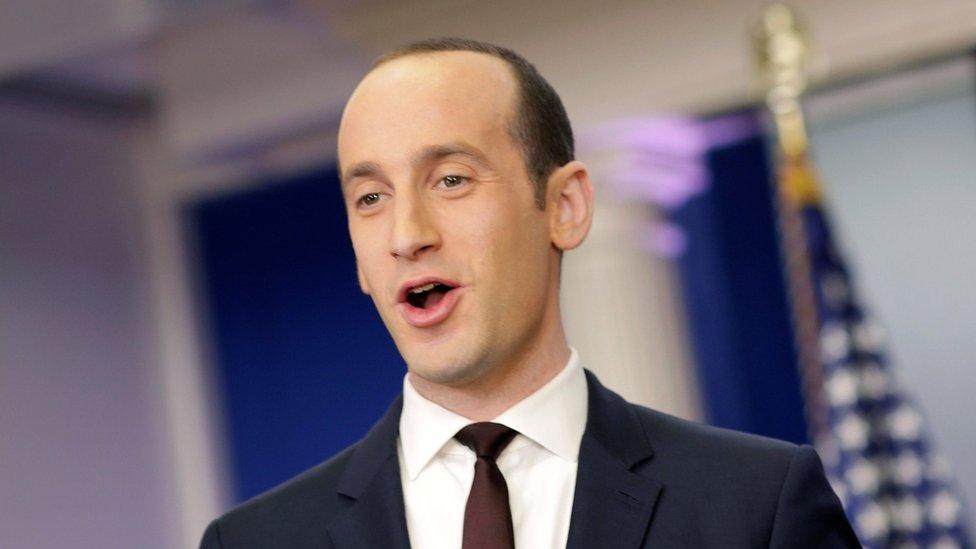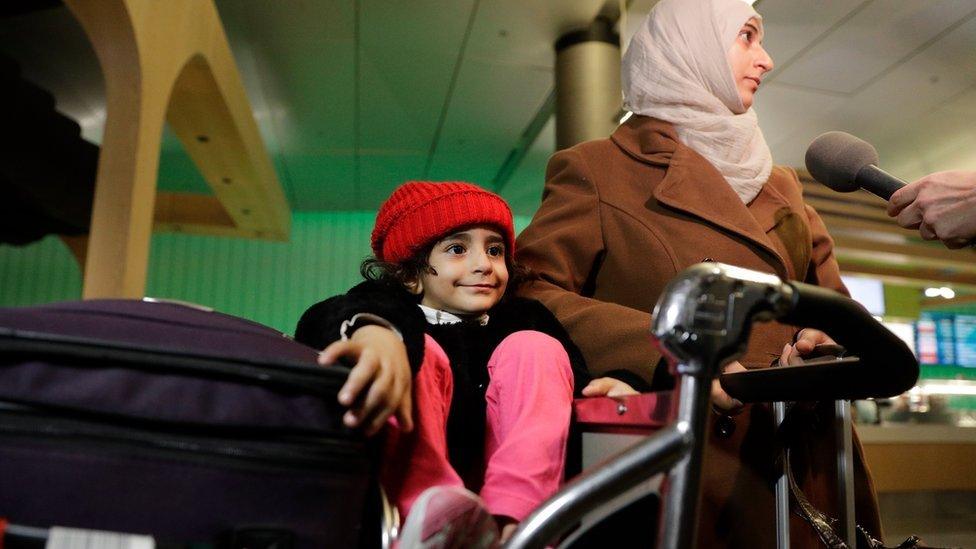Trump travel ban: Policy adviser attacks US federal appeals court
- Published

Stephen Miller said Mr Trump's powers to order a travel ban were "beyond question"
A top White House adviser has attacked the US federal appeals court for upholding a ruling suspending Mr Trump's travel ban order.
Stephen Miller told US media the court ruling was a "judicial usurpation of power" and that "the president's powers here are beyond question".
The court rejected Mr Trump's attempt to reinstate the ban on Thursday.
His executive order barred citizens from seven mainly Muslim countries from entering the US.
The ban caused chaos at US airports and sparked protests across the country.
Several lawsuits have been filed against the ban, and a federal judge has issued a temporary nationwide block on the travel ban.
Mr Trump has said he may fight the case in the courts, but could also consider issuing a new executive order.

The appeal court ruling means visa holders from seven countries, including this three-year-old from Yemen, can enter the US again
Speaking on Fox News Sunday, external, Mr Miller accused the 9th US Circuit Court of Appeals, which upheld the block on Mr Trump's order, of "overreaching".
He also told ABC's This Week, external: "We have equal branches of government in this country. The judiciary is not supreme."
Under the US system of checks and balances, courts can declare laws, or acts by the president, unconstitutional.

President Trump's travel ban court battle explained

The US government has argued that the president is best placed to make decisions about national security, and that the ban does not discriminate against Muslims.
But upholding the suspension last week, the three appeals court three judges said that the government had provided "no evidence that any foreigner from the countries named in the order" had carried out a terrorist attack on US soil.

Lawsuits against the ban have been launched in 14 states.
The states of Washington and Minnesota have argued that the travel ban is unconstitutional and harmful to their residents, businesses and universities.
The US state with a deep fear of refugees
Washington State Attorney General Bob Ferguson told ABC, external on Sunday the current order was "unlawful" and had an "improper motive" because it was intended to discriminate against Muslims.
If necessary, he could ask government officials to testify, and examine "documents and emails to get behind what truly motivated that executive order", he added.

What did the executive order say?
nationals from Iraq, Syria, Iran, Libya, Somalia, Sudan and Yemen - even those with visas - banned from entering the US;
a temporary ban on all refugee admissions;
the reprioritisation of minority religion (interpreted to mean Christian) refugee claims;
a ban on all Syrian refugees;
a cap on total annual refugee admissions to the US of 50,000.